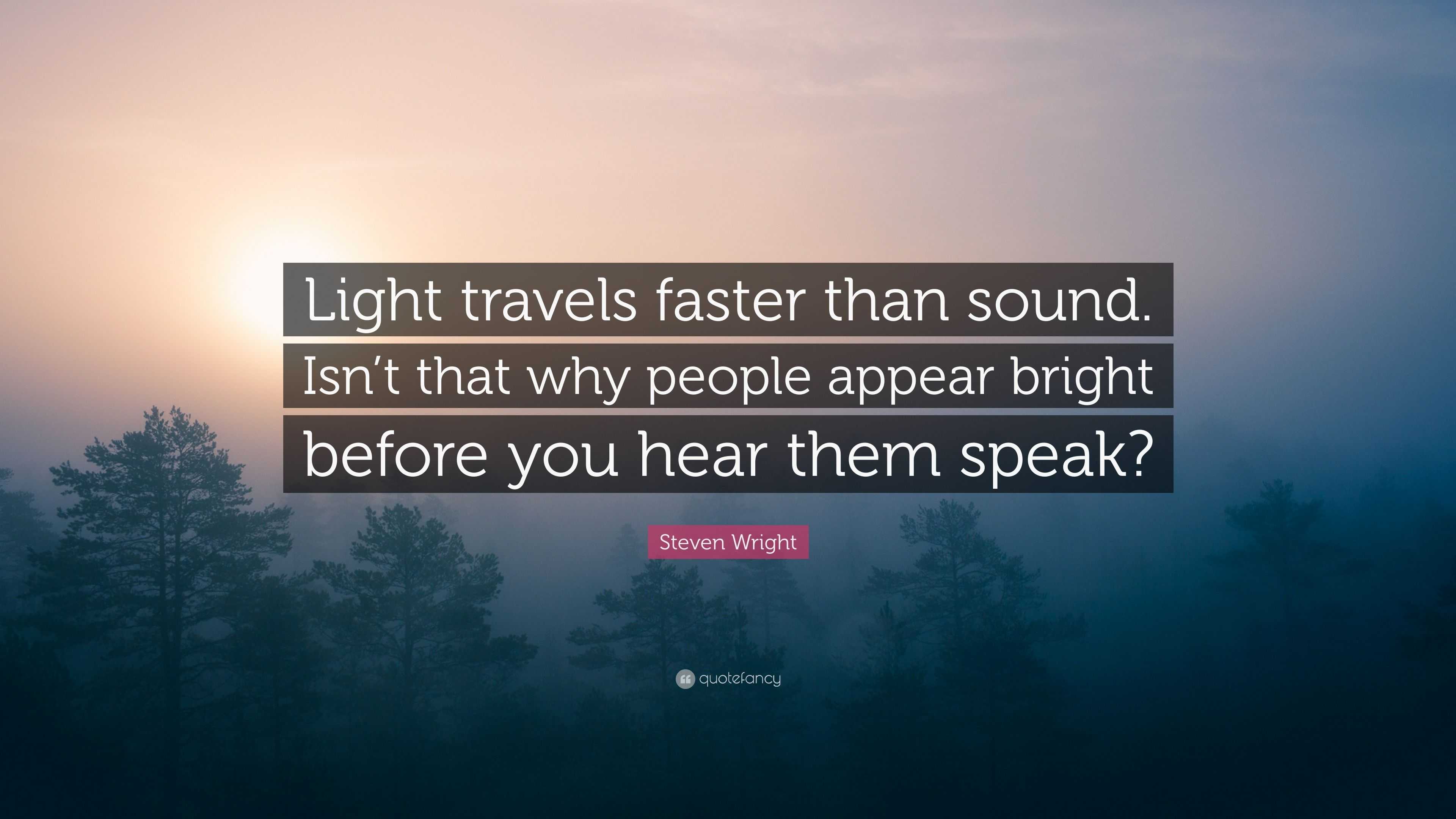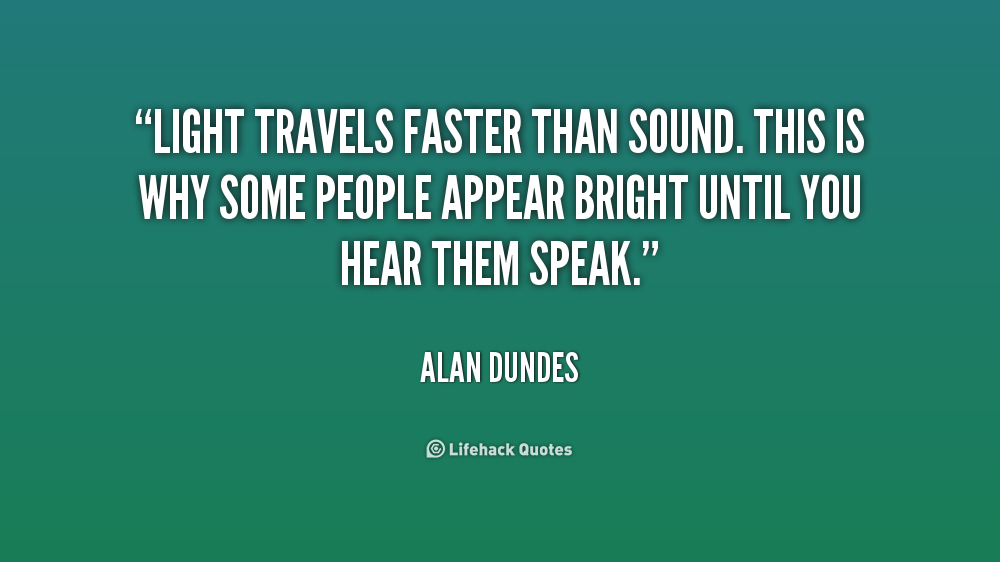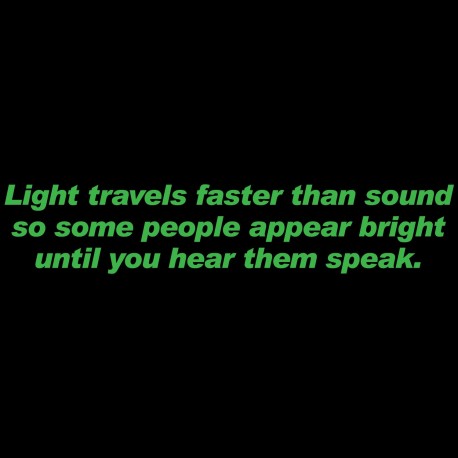
The speed of light when it passes through a transparent or translucent material medium, like glass or air, is less than its speed in a vacuum. See also the later section of this article at "Speed of light set by definition". In imperial units, the speed of light is about 670,616,630.6 miles per hour or 983,571,056 feet per second, which is about 186,282.397 miles per second, or roughly one foot per nanosecond. The approximate value of 3×108 m/s is commonly used in rough estimates (the error is 0.07%). The fundamental SI unit of length, the metre, has been defined since October 21, 1983, as the distance light travels in a vacuum in 1/299,792,458 of a second any increase in the measurement precision of the speed of light would refine the definition of the metre, but not alter the numerical value of c. In metric units, the speed of light in vacuum is exactly 299,792,458 metres per second (1,079,252,849 km/h). More generally, it is the speed of anything having zero rest mass.
#SOUND TRAVELS FASTER THAN LIGHT FREE#
It is the speed of all electromagnetic radiation, including visible light, in free space. "The speed of light in free space (a vacuum) is an important physical constant usually denoted by the letter c. Light is composed of elementary particles called photons." In a scientific context, the word light is sometimes used to refer to the entire electromagnetic spectrum. "Light, or visible light, is electromagnetic radiation of a wavelength that is visible to the human eye (about 400–700 nm). The speed of sound in liquids and non-porous solids is much higher than that in air." Although it is commonly used to refer specifically to air, the speed of sound can be measured in virtually any substance. In dry air with a temperature of 21 ☌ (70 ☏) the speed of sound is 344 m/s (1230 km/h, or 770 mph, or 1130 ft/s). The speed of sound describes how much distance such a wave travels in a certain amount of time. "Sound is a vibration that travels through an elastic medium as a wave. Physically, sound is vibrational mechanical energy that propagates through matter as a wave." "Sound is the vibration of matter, as perceived by the sense of hearing. And as it turns out, as no known material is even NEARLY as hard as the limits imposed by relativity, the speed of sound is not just bounded below c in magnitude, it's really, really small by comparison. atoms) it is a process that is also trapped between -c and c. As it is just a consequence of motion of the known particles of substantial duration (i.e.

Sound is much, much faster in a super-hard material than, say, air. It is merely the motion of this very matter trapped between -c and c, exclusive (not containing -c and c). So given finite energy and all known substance traveling less than the speed of light already, no known physical process can accelerate any sample of matter up to or beyond the speed of light.

Everything known is currently moving at slower than the speed of light, and it is provable by the axioms of relativity that given a chunk of matter traveling at less than the speed of light, it takes infinite energy to accelerate it up TO the speed of light.

Why this is amounts to a mathematical proof by induction. And as it has no matter to exist within, it must move with spacetime, no slower and no faster. Light is energy without matter traveling along empty spacetime. Ok, the answer is that light is a more fundamental thing than sound. Unless you speak to them over the phone before ever seeing them. You know they look stupid, and then they open their mouths and then you hear they're stupid. "Soundproofing" is actually the interruption of that path of vibrations, usually a spongy or "foamy" structure, so that the vibrations are repeatedly stopped on their path until they lose the energy that keeps them going (and THAT is an over-simplified explanation, but you get the idea.)

It literally causes each molecule to vibrate as it passes, and that's what you actually "hear" when those vibrations reach your ear. Sound, on the other hand, cannot travel without a medium, since it depends on a physical vibration. It actually can be slowed somewhat (although very slightly) through glass, etc.
#SOUND TRAVELS FASTER THAN LIGHT FULL#
The fact that light does not need a medium means that it can travel full tilt (and its fastest) in a vacuum. (The qualifiers are because there can be variations.) Why are they different? Why is one person a blonde and another a redhead? or one tall and another short? I think you most likely want to know something more about the media of transmission, perhaps. The speed of sound is about 1100 feet per second. This is like "Why is up?" The speed of light is approximately 186,000 miles per second.


 0 kommentar(er)
0 kommentar(er)
